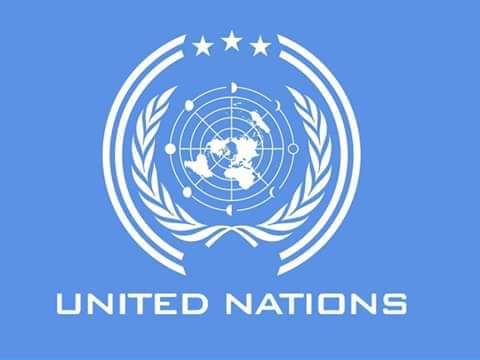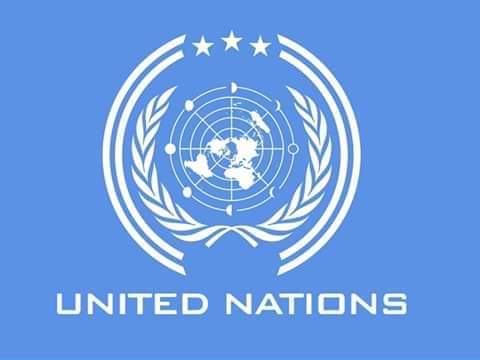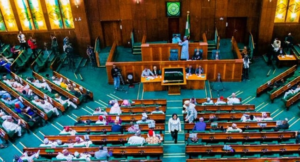
The United Nations has asked for the immediate release and return to safety of all aid workers held captive by insurgents in the Nigeria Northeast.
The appeal was made in Maiduguri by the Deputy Head of Office of the United Nations Office of the Coordination of Humanitarian Activities (UN-OCHA), Mr. Peter Ekayu.
Ekayu, who addressed a gathering of aid workers and students at the El-Kanemi Hall of the University of Maiduguri, as one of the activities marking the 10 years anniversary of World Humanitarian Day, lamented that though state emergency institutions, local and international NGOs as well as the United Nations and other partners had scaled up support in the Northeast, they were facing great challenges.
 He said: “Incident and attacks in recent weeks have been a stark reminder that the crisis in Borno state is far from over.
He said: “Incident and attacks in recent weeks have been a stark reminder that the crisis in Borno state is far from over.
“Tens of thousands of people have been uprooted from their house again and violent attacks have ravaged entire communities. Over the years, too many innocent children, women and men have died in the violence. Latest data show that about 35,000 people have lost their lives in the conflict since 2019. These are 35,000 too many.”
He said that: “Humanitarians are now a target of attacks in Borno State. And today we are, before all, gathered to remember remarkable women and men who lost their lives in service of humanity.
He noted that: “Saifura Hussaini Ahmed Khorsa, Hauwa Mohammed Liman were midwives with ICRC and were executed after being held in captivity by non-state armed groups for more than six months. Both aid workers were abducted from Rann town, Borno State in March 2018 along with a nurse from UNICEF who is still held in captivity.”
“Faye Mooney, was a British communications and learning specialist with the non-governmental organisation Mercy Corps. She lost her life in an attack by gunmen in Kaduna State earlier this year.”
He decried that: “In the past year, tragic events befell women humanitarians working in Nigeria.”
He said: “In total 37 aid workers have lost their lives in service of humanity since the beginning of the conflict. We are here together to honour them and their grieving families, relatives and the children surviving them.
“As I stand before you today, my thoughts also go to the families of our colleagues who are still being held captive by armed groups. The UN and its humanitarian partners call for their immediate release and return to safety.”
He added that: “Marking World Humanitarian Day, I salute the courage and relentless commitment not only colleagues and partners, but also affected people and families have shown over the years. Our efforts are not in vain. Together, we are making a difference in the life of millions.
“And I would like to pay special tribute to the women contributing to the humanitarian response.”
Ekayu said: “Women are active in every aspect of humanitarian action in Borno: from negotiating access to people in need, to addressing deadly diseases such as measles and cholera. From reuniting separated children to ensuring people uprooted by natural disasters and conflict have shelter, access to clean water, healthcare, food and education.
“About 80 per cent of the people in need of urgent humanitarian assistance are women and children. Women humanitarians bring a unique perspective to this workthrough their understanding of the specific needs and priority of these 80 percent.
“Their protection must be our priority. Women humanitarians also have the ability to reach women and girls who might otherwise be out-of-reach and bring them the information, support and services they need.
“The less attention we pay to the crisis in the north-east, the more risks our colleagues who are working in extremely volatile areas are facing.
“As respect for the laws of war weakens, aid workers are increasingly vulnerable, though they are more needed than ever before.
“In honour of all of those who have lost their lives in this conflict, and in hope of a prompt return of our abducted colleagues to the safety of their homes, I implore all of us today to make a commitment to each other: That we will seize each and every opportunity possible to raise awareness and understanding of the work humanitarian actors do, of the humanitarian principles and the humanity guiding us, and of international humanitarian laws and the importance of protecting civilians.
“And that we will support the amazing women, especially Nigerian colleagues, who have chosen to live in some of the most at risk areas of the State. They deserve our attention. They deserve our support as recognition that they are absolutely essential to the humanitarian response.
“Women and children are the majority of victims in this crisis. Many of them having been abducted and coerced to carry suicide attacks in civilian areas. Many have been raped, abused, or forced to resort to transactional sex to survive. More than one million children are acutely malnourished in Borno, Adamawa and Yobe states.
“Together, we can create a better world for women in conflict and those who put their own lives at risk to help them.”








